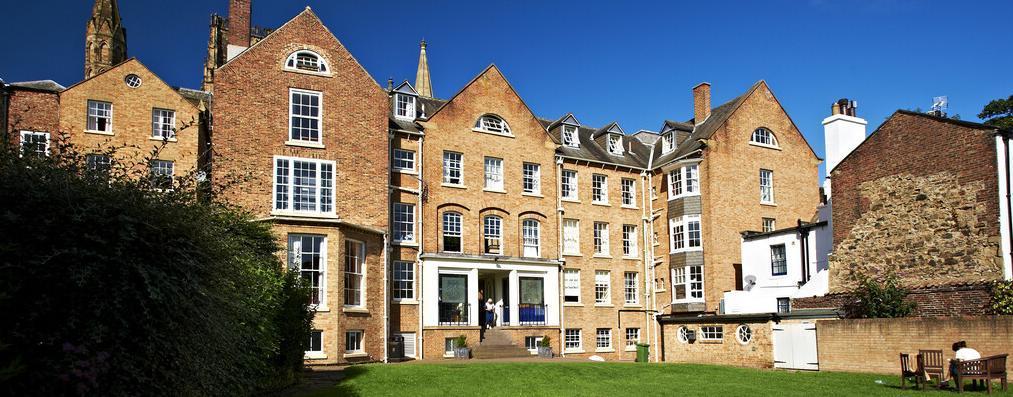Call for Papers (presentation proposals) for our 2026 conference

What Have We Learned? Research Intersections in Moral Injury: An interdisciplinary conference taking place in person in Durham, UK, on 20-22 April 2026
Call for papers (proposals for presentations)
With the 1994 publication of "Achilles in Vietnam: Combat Trauma and the Undoing of Character", Jonathan Shay’s reflections on the moral trauma that combatants experience focused attention on the phenomenon that he would eventually describe as ‘moral injury’. Since then, moral injury has been observed in contexts from military veterans and law enforcement personnel to veterinarians and healthcare workers to refugees and survivors of abuse. It has also been conceptualised, studied, and researched in clinical, religious, anthropological, sociological and philosophical disciplines, among others.
What is clear in the decades of research that have followed Shay’s work is that these different contexts and disciplinary perspectives have illuminated different aspects of moral injury in ways that are critically helpful in understanding it and in exploring pathways to recovery. Moreover, the interdisciplinary research environment around moral injury is increasingly shaped by helpful collaborations between different types of researchers from different backgrounds, often using different conceptual languages to explore, define and describe the contours and contexts of moral injury.
This conference seeks to lift up these intersections of work on moral injury around a cluster of questions:
- What do we learn from the intersection of different disciplinary approaches?
- Where do we find commonalities in the experience of moral injury amongst different contexts? Conversely, in what ways do certain contexts produce uniquely morally injurious experiences?
Such research and conversation may:
- Entail a re-envisioning of moral injury as a concept and/or the assumptions and foundational ideas upon which those definitions are constructed, and/or,
- Look towards practices of moral restoration and repair – either as individuals or in collective contexts.
As such, we warmly welcome paper proposals (proposals for presentations) that:
- Explore these aspects of moral injury and interdisciplinarity and intersections among contents
- Feature collaborative efforts across disciplines or contexts
- Explore moral injury in particular situations or amongst particular populations
- Envision pathways of recovery from moral injury
- Examine moral injury from particular perspectives
We welcome paper proposals (proposals for presentations) from:
- All academic disciplines across the humanities, sciences and social sciences;
- Chaplains, clergy, psychologists and others with practical experiences of care for those with moral injury.
While these will be the central themes of the conference, we value the diverse mix of papers around moral injury that our previous conferences have elicited – and we value the collaborative efforts that they have helped foster. If you are doing research around moral injury and are wondering whether or not your proposal fits these themes, we’d encourage you to submit.
Presentations will be 20 minutes (around 2500 words) in length, with a 10-minute question and answer session to follow.
If you would like to submit a paper proposal, please submit a 500-word synopsis and some brief biographical information using our online paper proposal form by Thursday 18 December 2025.
Venue and programme

The conference will take place at Durham University in the North East of England. The venue will be St Chad's College (pictured) which is in the historic city centre and 20 metres from Durham's World Heritage Site which comprises the magnificent Norman cathedral and castle in their dramatic position on top of the steep wooded banks of the River Wear.
The conference will run from 1.15pm on Monday 20 April to 1.15pm on Wednesday 22 April 2026.
Registration and costs
Registration will open in early 2026. The standard registration fee will be 260 GBP; students will be eligible to register for the subsidised registration fee of 190 GBP. This registration fee includes refreshments, dinner on 20 April, and lunch and dinner on 21 April.
A small number of bursaries will be available intended for presenters who have less institutional support. This is a small fund that can offer limited, partial help towards attendance – these are intended only for those for whom the full costs would be prohibitive. If you would like to be considered for a bursary, please include this request in the “Other Notes” section of the paper proposal form, outlining where you would be travelling from and giving a breakdown of your travel costs.
Please note that we will not be able to confirm whether or not overnight accommodation is available at the university until January 2026. Paper proposers on a tight budget might wish to book a room at one of Durham’s more reasonably priced hotels. At the time of writing, refundable bookings are available at the Travelodge for around £52 per night. Delegates with more flexibility might like to consider the Premier Inn, Marriott, Radisson, or Hotel Indigo.
If you might like to attend without doing a presentation and would like to be notified when registration opens, please ensure you are on our mailing list.
Questions?
If you have any questions about the conference please do not hesitate to contact us at icmi@durham.ac.uk.


/prod01/prodbucket01/media/durham-university/research-/research-centres/international-centre-for-moral-injury/Moral-injury-banner-1920X290.jpg)